Remembering Félix Junquera Tejeda
As I journey across the Atlantic from Orlando, Florida, I reflect on my experiences of the 3rd International Children’s Advisory Network (iCAN) Research and Advocacy Summit. From July 10th to July 14th, over 200 young people, parents, carers, young person’s advisory group leaders and scientific partners came together to raise the profile of paediatric research, and the importance of involving young people in all aspects of healthcare research design and delivery.
The
International Children’s Advisory Network (iCAN) began in 2013, when the first Kids Impacting Disease through Science (KIDS) group was launched in Connecticut, in the United States of America (USA). The KIDS groups were modelled on the existing Young Person’s Advisory Groups (YPAGs) in Europe and Canada. The first YPAG,
GenerationR, was launched in 2006 in the United Kingdom (UK). Jenny Preston, the National Institute for Health Research’s Patient and Public Involvement and Engagement Priority Lead, was the guiding influence behind GenerationR, and consequently, the successful expansion of YPAGs around the world. As iCAN began to develop, KIDS groups across the USA, as well as YPAGs in the UK, France and Spain, formally came together to form iCAN, with the ambition to expand globally, to ensure that more young people and families are empowered to contribute to research.
The iCAN Research and Advocacy Summit
In 2015, iCAN hosted their first Research and Advocacy Summit in Washington, D.C. The purpose of this event is to provide a structured setting for young people and their families to come together with research professionals, to share experiences, learn from one another, and engage with world leaders in healthcare, research and patient advocacy. 2016 saw the second Summit hosted in Barcelona, Spain, by the KIDS Barcelona YPAG. Given the success of the Summit, they continue to be hosted on an annual basis by different YPAGs. This year, KIDS Florida hosted the third Summit in Orlando, Florida.
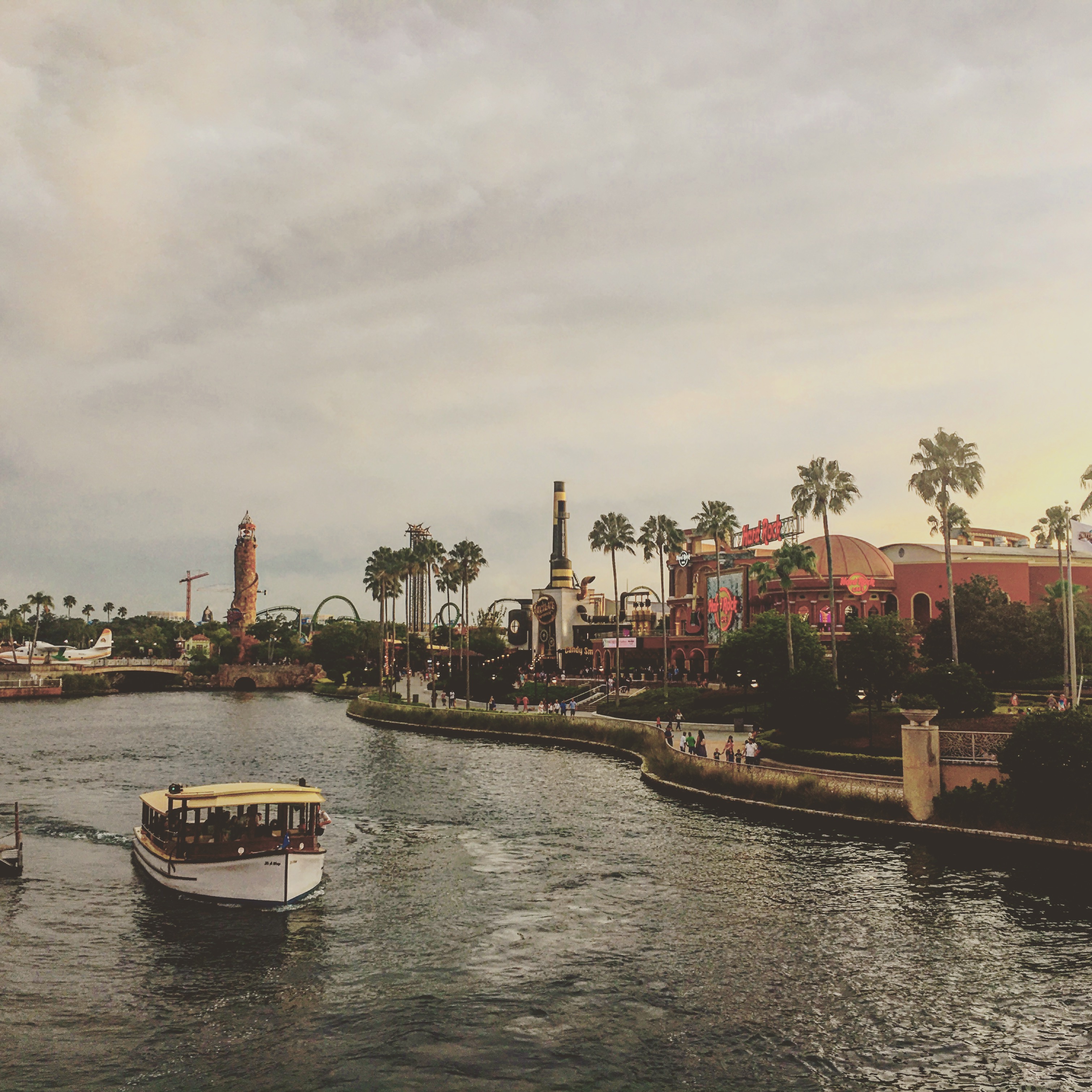
Hero’s Journey Art
After registering at the Summit, attendees participated in an
Eli Lilly and Company activity called
Hero’s Journey Art. This is a national art project to honour clinical trial participants, while raising awareness of clinical trials. Attendees had the opportunity to decorate a wooden brick that will be incorporated into a larger wooden sculpture, along with other bricks from the entire clinical trial community.
The growing network
It is exciting to witness the growth of YPAGs around the world, demonstrating the increasing investment of time and resources into expanding the role that young people play in research. In 2017, three new YPAGs were established and joined iCAN: KIDS Bari (Italy), KIDS Tokyo and a special interest chapter not confined by location, KIDS Childhood Cancer. KIDS Tokyo represent the first YPAG in the Asia-Pacific region. There are also several new groups on the horizon, including: KIDS Orange County, KIDS Baltimore/DC and KIDS Czech Republic. Another exciting initiative that was formally introduced at the Summit includes the
European YPAG Network (eYPAGnet), a sub-network under the umbrella of iCAN.
The European YPAG network (eYPAGnet)
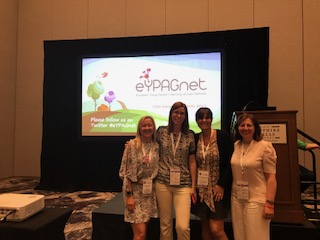
eYPAGnet unites existing YPAGs from across Europe, with the aim of delivering a collaborative and unified approach to paediatric research across Europe. With encouragement and accreditation from the
European Network of Paediatric Research at the European Medicines Agency (EnprEMA), eYPAGnet is coordinated by Hospital Sant Joan de Déu in Barcelona. Current members of eYPAGnet include: KIDS Barcelona, KIDS France, ScotCRN, and GenerationR (Birmingham, Bristol, Liverpool, London, and Nottingham). The steering committee and founding members include: Joana Claverol (KIDS Barcelona), Begonya Nafria (KIDS Barcelona), Jenny Preston (GenerationR), Pamela Dicks (ScotCRN), and Segolene Gaillard (KIDS France).
eYPAGnet responds to the unique needs of paediatric research and the European regulatory framework, enabling the cooperation among groups and the development of new projects in a collaborative way. The goals of eYPAGnet include:
- To improve the capacity of collaboration with those who participate in the research process and are involved in the development of new healthcare interventions;
- To gather a variety of experience related to different health conditions;
- To promote the planning and development of clinical research initiatives for children, on a European level;
- To consolidate the curriculum of capacity-building and empowerment training programmes to young people and families involved in research;
- To promote and lead the creation of new chapters across Europe; and
- To empower the selection of professional scientific careers among young people.
The bold and exciting step that eYPAGnet has made, will reap many benefits in the future, as we capitalise on the shared experience and talent across Europe, to advance paediatric research both across Europe, and internationally.
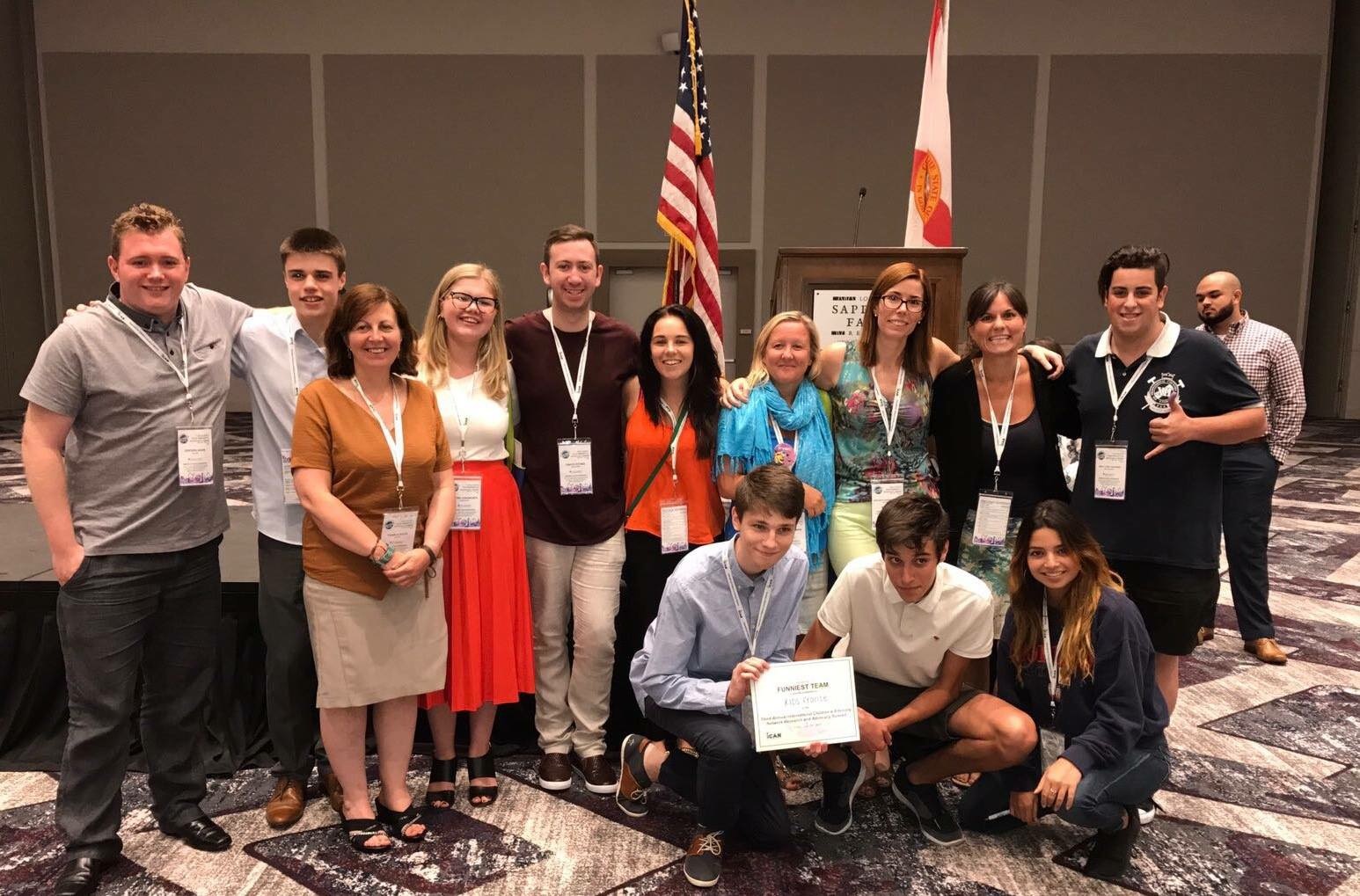
Remembering why research is so important
Raymond Rodriguez-Torres delivered an emotional and powerful keynote address, leaving the entire room with tears in their eyes. In July 2007, Raymond and Shannah’s daughter, Bella, became paralysed overnight. The cause of the paralysis was a large tumor in her spine with seven other tumors throughout her body. She was diagnosed with
Stage 4 Alveolar Rhabdomyosarcoma, an aggressive form of childhood cancer. Healthcare professionals across the globe said that Bella had but a few months to live and would never walk again. However, with intense treatments and support from around the world, she regained the ability to walk snd went into remission, when it was never thought possible. Bella courageously fought cancer six times until her death on 28th May 2013.
Raymond went on to describe how the phrase #LiveLikeBella became known around the world, inspired by one courageous little girl whose attitude in life was to serve others. Since Bella’s passing, Miami Dade County and the City of Miami passed resolutions urging congress to enact the “Bella Bill”, a law that would provide a platform to accelerate innovation for childhood cancer research. Her life and legacy, to care and serve others, now lives on with the work of the
Live Like Bella® Childhood Cancer foundation, whose purpose is to end childhood cancer.
“To live like Bella means to serve others.”
[youtube https://www.youtube.com/watch?v=2vCLxatg7Z0?rel=0&w=560&h=315]
The only source of knowledge is experience
Following a hugely motivation introduction to the Summit, each YPAG team highlighted projects that they had been involved with over the last year through a series of poster presentations, with a flavour of what each team will be doing in the future. England was well represented. Jenny Preston, Sophie Ainsworth, Robyn Challinor and I attended the Summit, presenting collectively about the work of GenerationR, as well as Sophie’s organisation
RAiISE, and my PhD research study,
iSMART.
Across the Summit, young people and parents/YPAG team leaders followed different programmes related to healthcare and advocacy, underpinned by the importance of empowering individuals to communicate their message in a clear and coherent way that impacts others.
Where happiness inspires hope
On Tuesday evening, we experienced the magic that is
Give Kids the World Village. This experience touched each and every one of us, with tears, laughter and stories shared in the few hours that we were there. Since 1986, more than 154,000 children and families have had their dreams fulfilled thanks to Give Kids The World Village, which is an 84-acre, nonprofit resort based in Kissimmee, Florida. It provides weeklong, cost-free vacations for children with life-threatening illnesses and their families. The Village and its community partners provide children and their families accommodations in fully-furnished villas, in addition to transportation, tickets to theme parks, meals, daily entertainment and much more. Spending time at Give Kids The World Village reminded me that no matter how busy life gets, and no matter how much work there is to do, we must never get distracted from the most important things in life – friends, family, memories and laughter. I left this amazing place feeling humbled, and inspired for the days ahead.
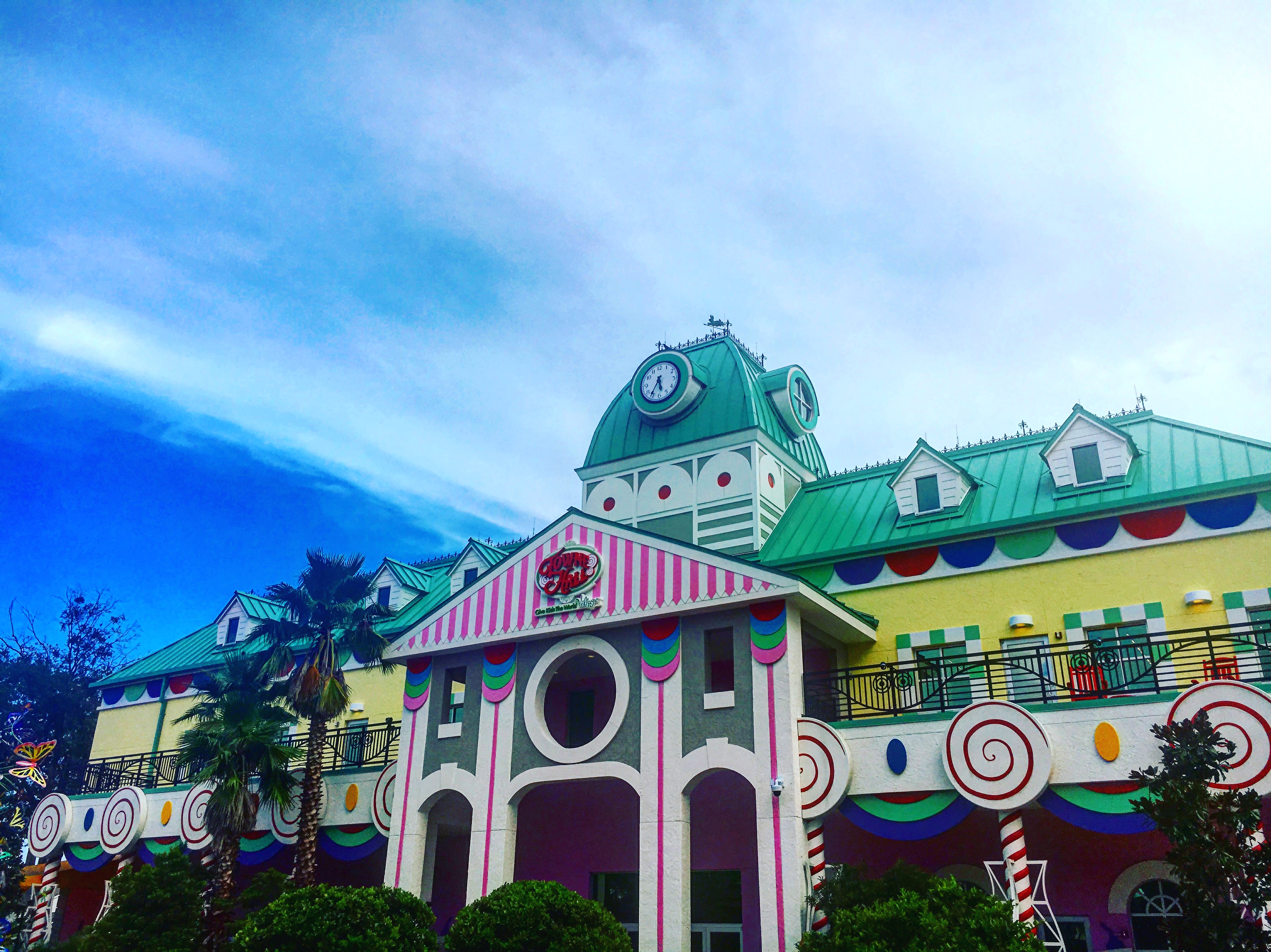
Informed consent and assent
The topic of informed consent and assent was high on the agenda once again at the Summit. For those of you unfamiliar with clinical research, informed consent is a fundamental component of ethical research, required for all research involving people. An informed participant understands the implications of taking part in the research and they agree to be a part of the research. It recognises that participation is voluntary and participants can withdraw at anytime. Consenting is a process where the researchers
should clearly communicate with participants, ensuring that they understand expectations and what they will be asked to do.
However, there is a difference between consent and assent. Consent may only be given by individuals who have reached the legal age of consent (in the USA, this is typically 18 years old). However, in the UK, young people aged 16 to 18 with sufficient understanding and capacity are able to give their consent to participate in research independently of their parents/carers. Meanwhile, assent is the agreement of someone who is not able to give legal consent to participate in research. Research with children under 16 or adults not capable of giving consent requires the consent of the parent/carer and the assent of the individual who would be participating in the research.
Individuals are able to provide their consent and/or assent once they have read and understood everything about the research that they may participate in. This information is delivered to potential research participants in the form of participant information sheets. Sadly, extensive participant information sheets are making research unappealing, and for young people, they are often age- and developmentally inappropriate. We discussed how we could improve the consent and assent process, using alternative methods of sharing information in order to engage all learning styles. In the UK, I am involved in the
TRECA study, which is developing online multimedia interventions to describe research opportunities to young people and their families. The findings and outputs from this study could revolutionise the way that we inform young people about research. The importance of involving young people and their families in the design of participant information sheets was also emphasised. Researchers could involve local YPAGs, approach the iCAN Youth Council, work with existing patient groups, or establish bespoke own advisory group. Whichever method used, it is advisable to use multiple strategies to ensure that research materials are appropriate. Although it may feel like a significant investment of time and energy in the preparatory phases of research, the process will only add to the quality of research, and the sharing of knowledge with young people and their families.
Reflecting on an a never-ending journey
Towards the end of the Summit, Marco Rubio, Senator for Florida, joined us to talk about the importance of paediatric research, and the reason why networks such as eYPAGnet and iCAN are important intermediates in enabling young people with chronic conditions to shape the future healthcare landscape.
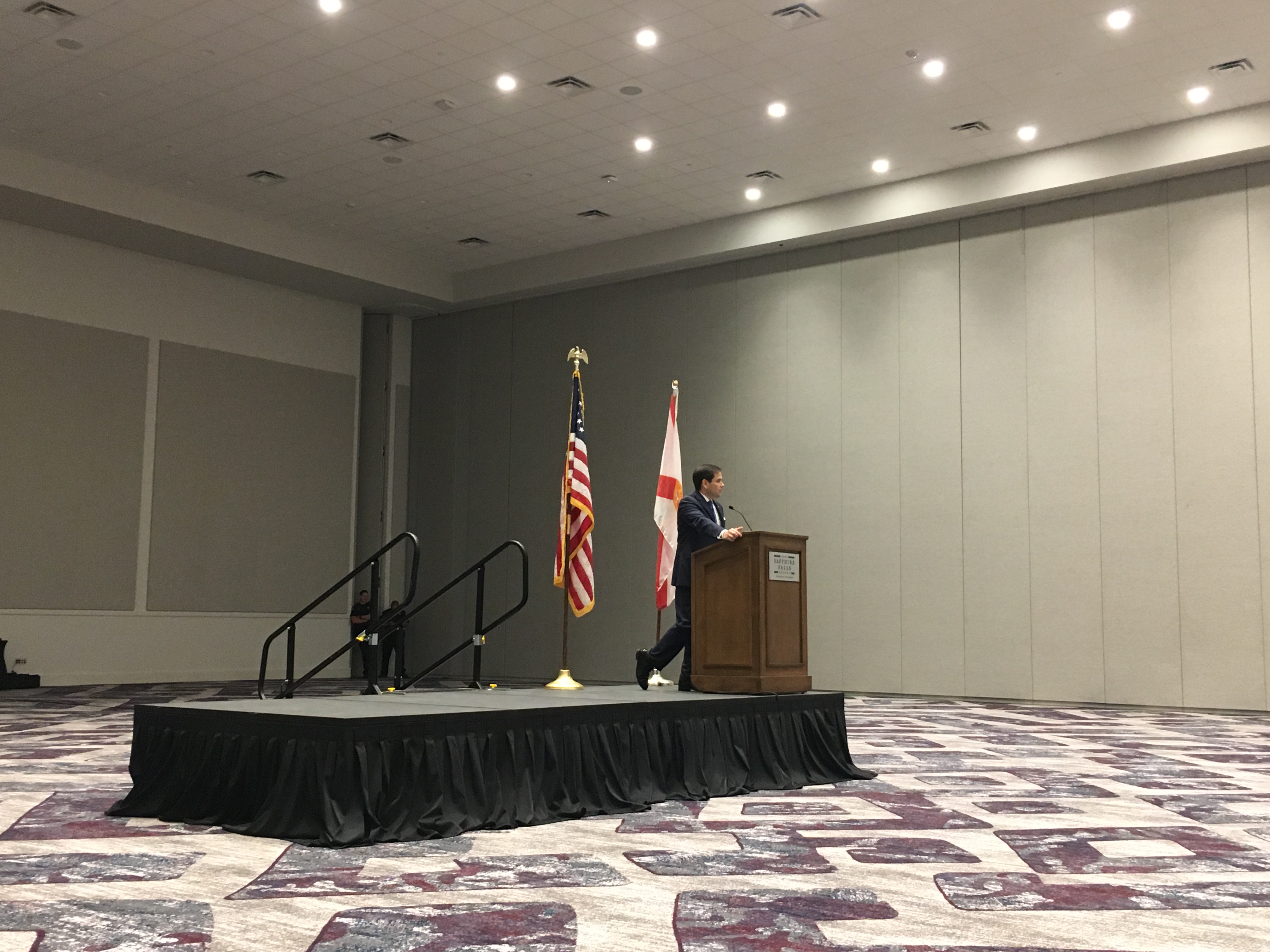
As with each Summit, the closing remarks were followed by an awards ceremony! Team England, representing GenerationR, didn’t do too bad, picking up five awards in the process. GenerationR received the award for the most professional YPAG team, while Jenny was awarded ‘The person most likely to know the answer to everything’. Sophie was awarded ‘The person most likely to set up a non-profit organisation’, Robyn was awarded ‘The person most likely get caught taking a selfie’, and I was awarded ‘The person most likely to become a doctor’. A little bit of light humour to end a busy few days!
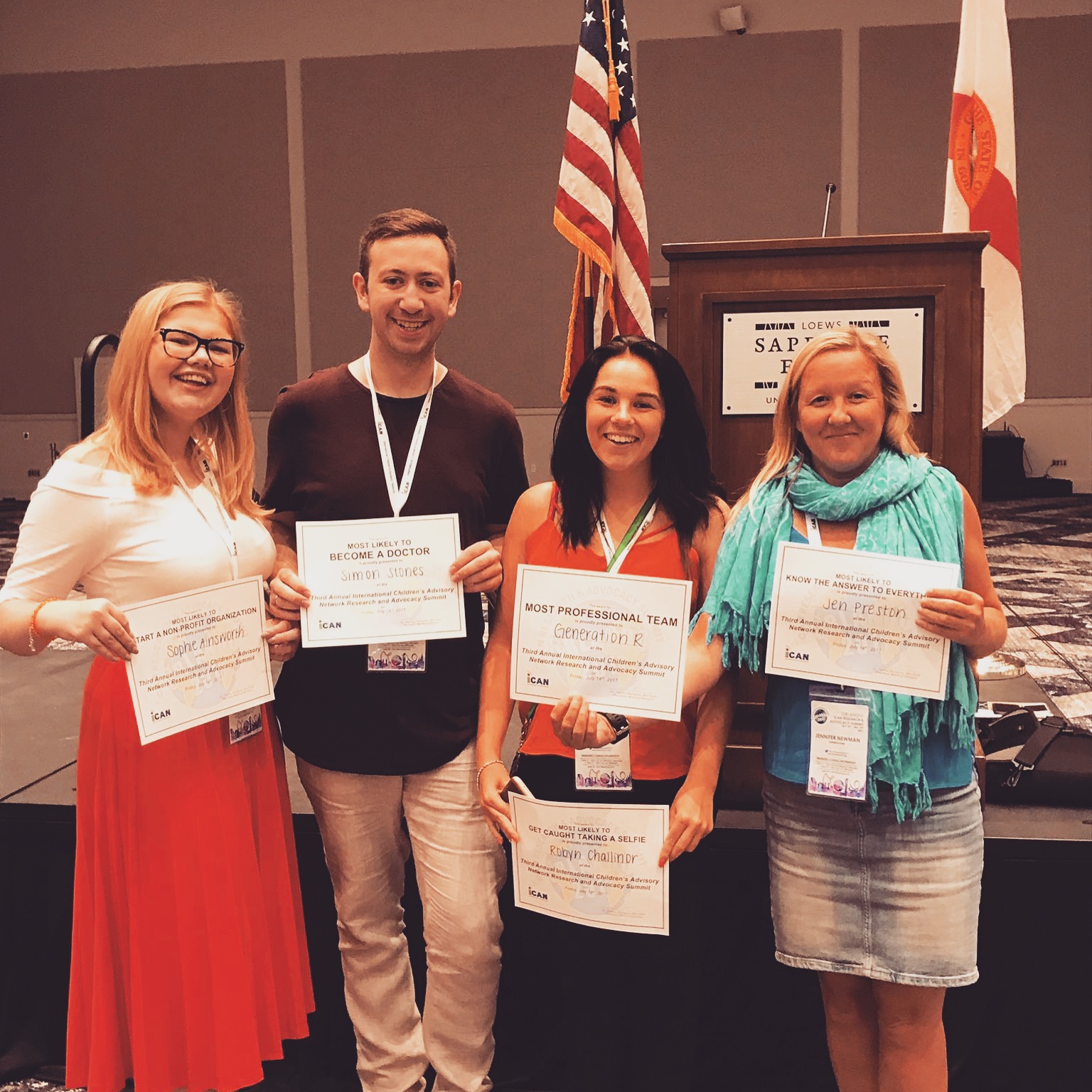
Aside from learning about some fantastic activities taking place around the globe, this year’s iCAN summit was an invaluable opportunity to bring together various stakeholders to network, share experiences, strengthen existing partnerships, and establish new working relationships, so that together, we make a real difference to the lives of young people living with chronic health conditions.
Stay up to date with iCAN
For more information about iCAN, please visit www.icanresearch.org or email info@icanresearch.org. You can also follow iCAN on
Facebook,
Twitter,
Instagram and Snapchat (@iCANResearch)!



 eYPAGnet unites existing YPAGs from across Europe, with the aim of delivering a collaborative and unified approach to paediatric research across Europe. With encouragement and accreditation from the European Network of Paediatric Research at the European Medicines Agency (EnprEMA), eYPAGnet is coordinated by Hospital Sant Joan de Déu in Barcelona. Current members of eYPAGnet include: KIDS Barcelona, KIDS France, ScotCRN, and GenerationR (Birmingham, Bristol, Liverpool, London, and Nottingham). The steering committee and founding members include: Joana Claverol (KIDS Barcelona), Begonya Nafria (KIDS Barcelona), Jenny Preston (GenerationR), Pamela Dicks (ScotCRN), and Segolene Gaillard (KIDS France).
eYPAGnet responds to the unique needs of paediatric research and the European regulatory framework, enabling the cooperation among groups and the development of new projects in a collaborative way. The goals of eYPAGnet include:
eYPAGnet unites existing YPAGs from across Europe, with the aim of delivering a collaborative and unified approach to paediatric research across Europe. With encouragement and accreditation from the European Network of Paediatric Research at the European Medicines Agency (EnprEMA), eYPAGnet is coordinated by Hospital Sant Joan de Déu in Barcelona. Current members of eYPAGnet include: KIDS Barcelona, KIDS France, ScotCRN, and GenerationR (Birmingham, Bristol, Liverpool, London, and Nottingham). The steering committee and founding members include: Joana Claverol (KIDS Barcelona), Begonya Nafria (KIDS Barcelona), Jenny Preston (GenerationR), Pamela Dicks (ScotCRN), and Segolene Gaillard (KIDS France).
eYPAGnet responds to the unique needs of paediatric research and the European regulatory framework, enabling the cooperation among groups and the development of new projects in a collaborative way. The goals of eYPAGnet include:




 As with each Summit, the closing remarks were followed by an awards ceremony! Team England, representing GenerationR, didn’t do too bad, picking up five awards in the process. GenerationR received the award for the most professional YPAG team, while Jenny was awarded ‘The person most likely to know the answer to everything’. Sophie was awarded ‘The person most likely to set up a non-profit organisation’, Robyn was awarded ‘The person most likely get caught taking a selfie’, and I was awarded ‘The person most likely to become a doctor’. A little bit of light humour to end a busy few days!
As with each Summit, the closing remarks were followed by an awards ceremony! Team England, representing GenerationR, didn’t do too bad, picking up five awards in the process. GenerationR received the award for the most professional YPAG team, while Jenny was awarded ‘The person most likely to know the answer to everything’. Sophie was awarded ‘The person most likely to set up a non-profit organisation’, Robyn was awarded ‘The person most likely get caught taking a selfie’, and I was awarded ‘The person most likely to become a doctor’. A little bit of light humour to end a busy few days!
 Aside from learning about some fantastic activities taking place around the globe, this year’s iCAN summit was an invaluable opportunity to bring together various stakeholders to network, share experiences, strengthen existing partnerships, and establish new working relationships, so that together, we make a real difference to the lives of young people living with chronic health conditions.
Aside from learning about some fantastic activities taking place around the globe, this year’s iCAN summit was an invaluable opportunity to bring together various stakeholders to network, share experiences, strengthen existing partnerships, and establish new working relationships, so that together, we make a real difference to the lives of young people living with chronic health conditions.












